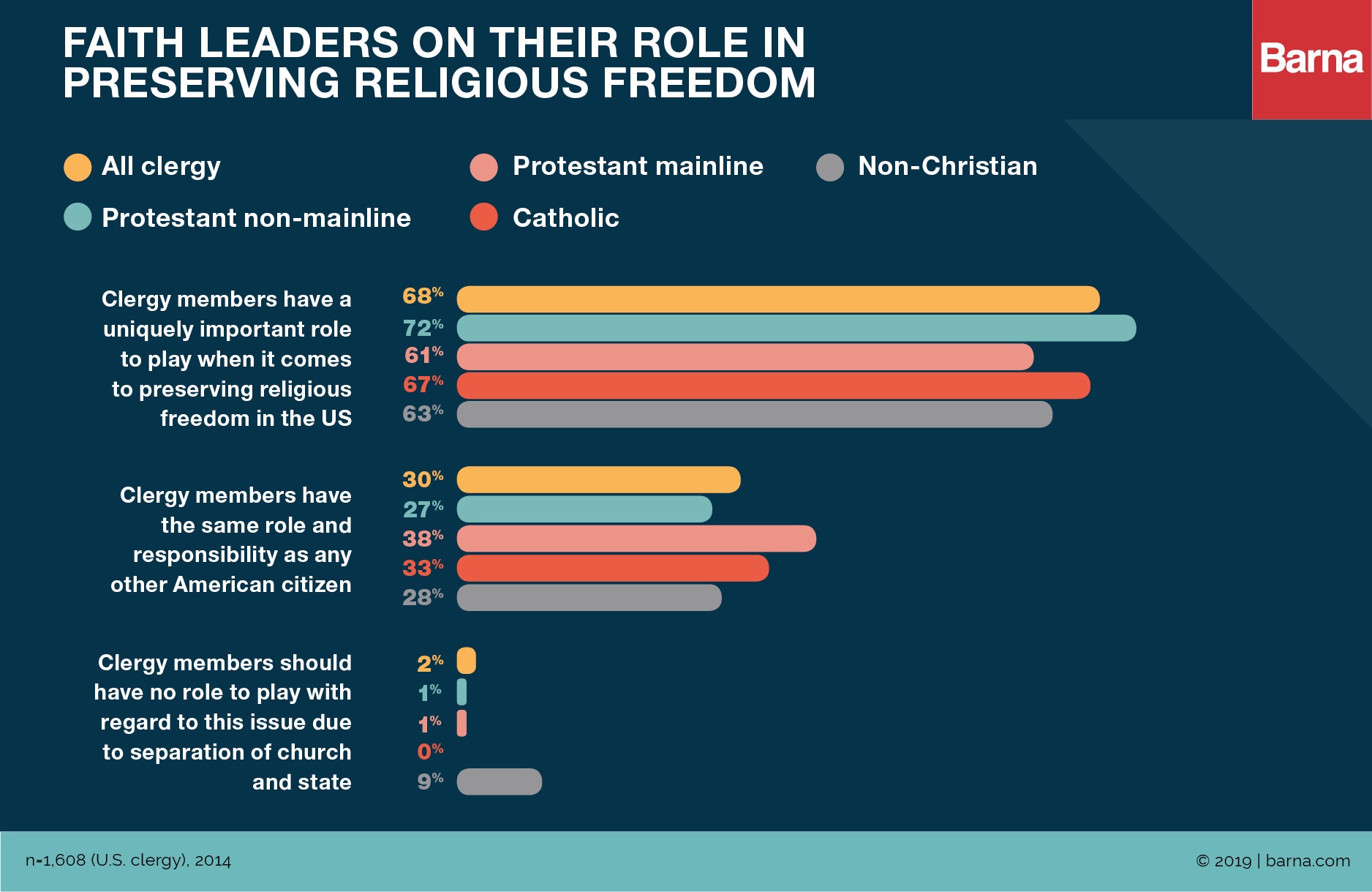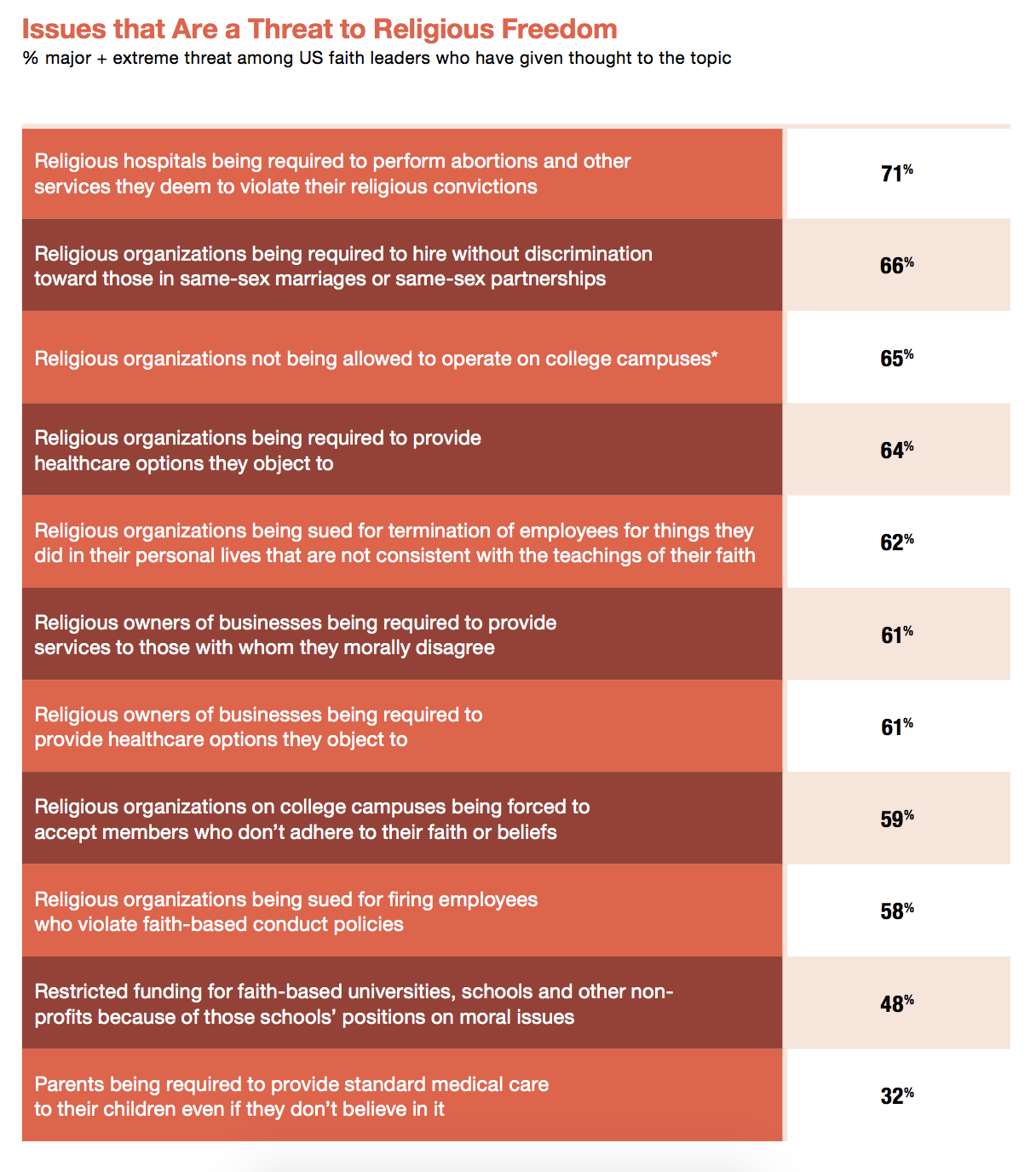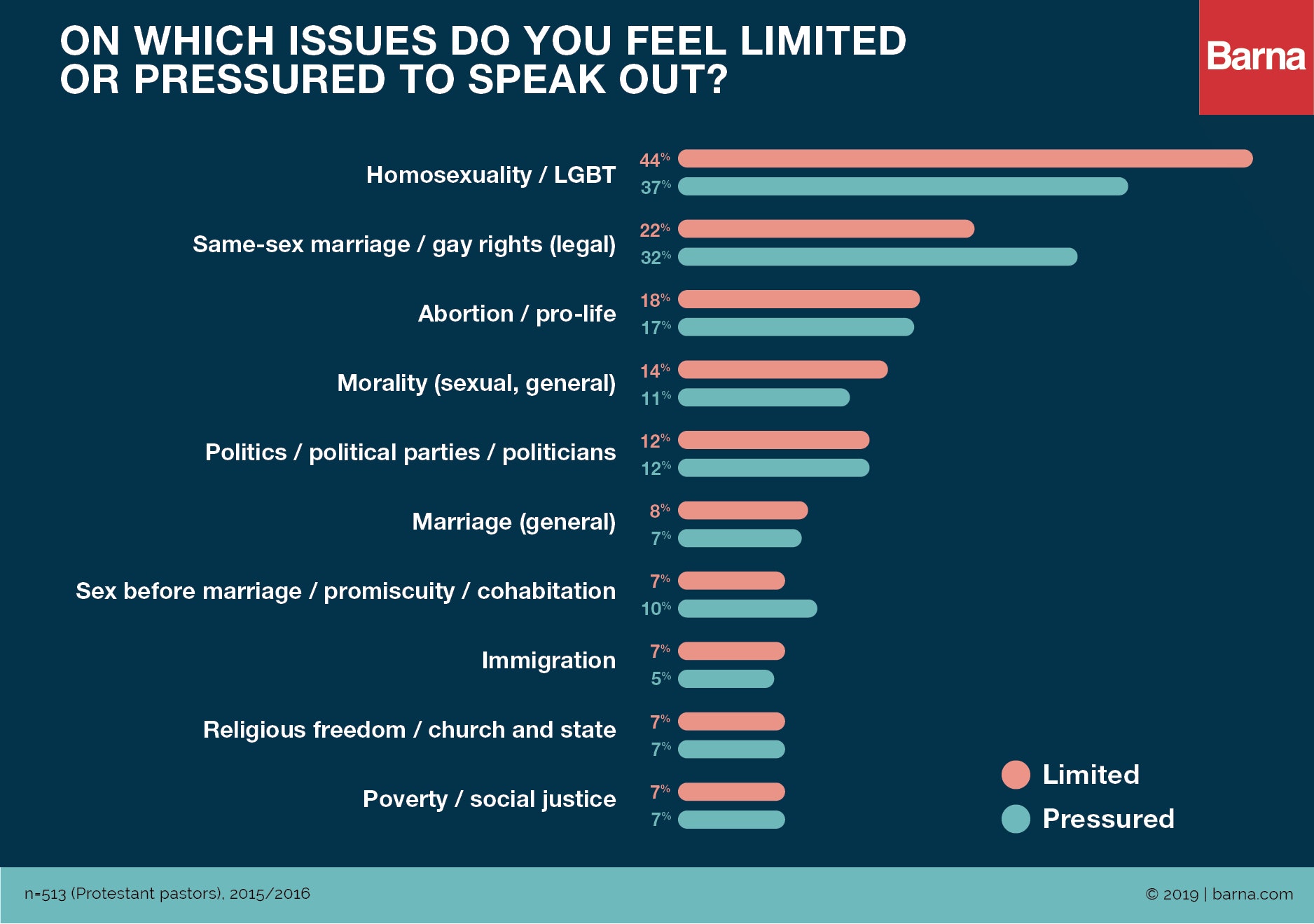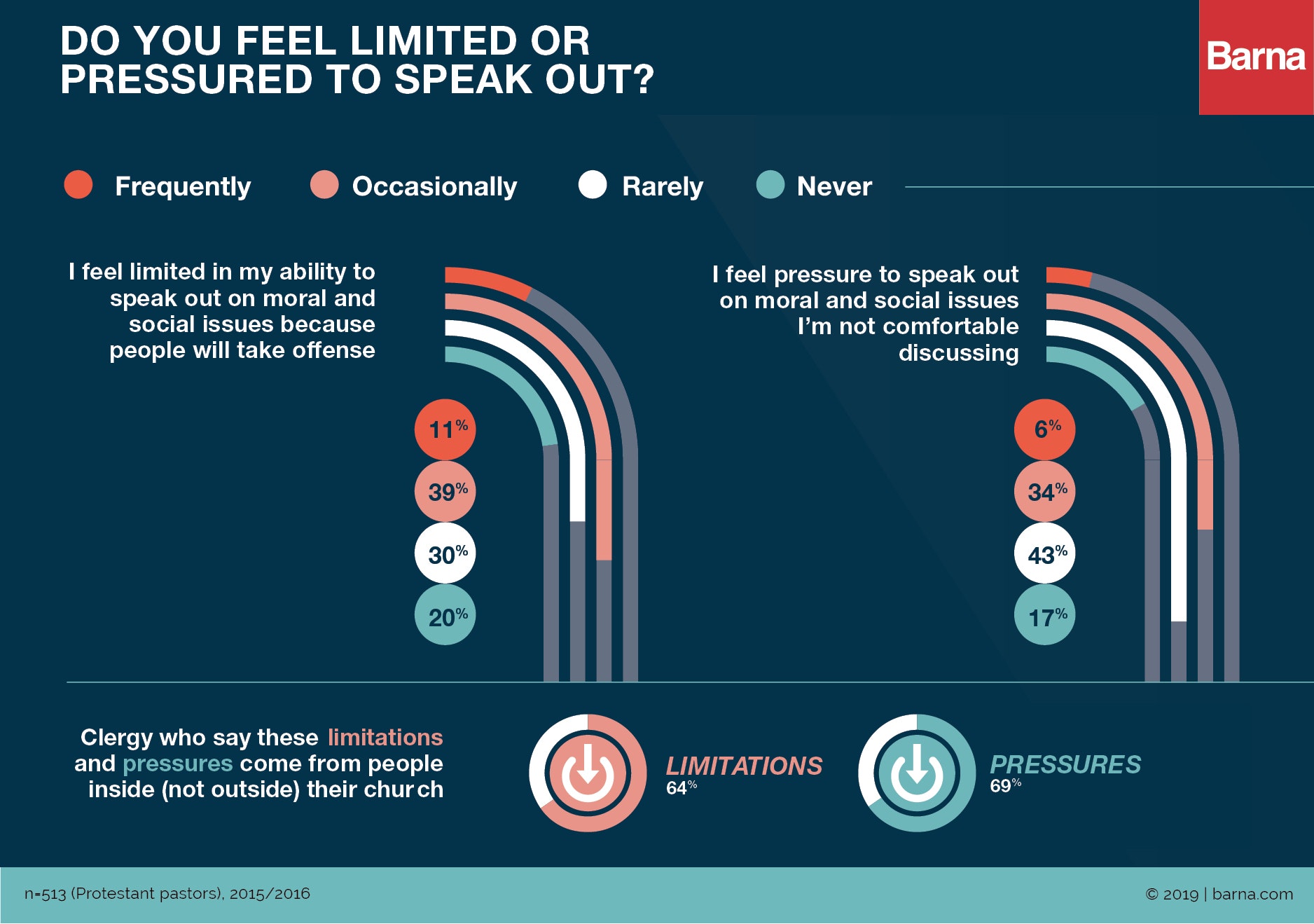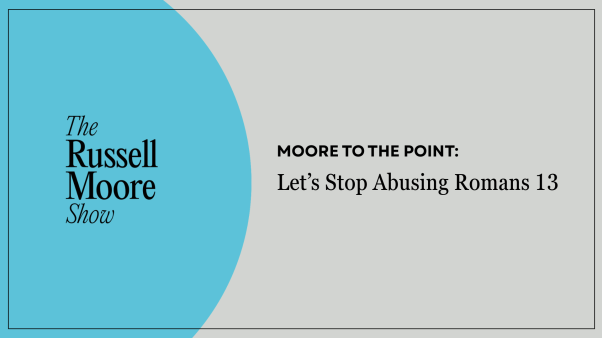Protestant pastors aren’t as concerned about religious liberty as they were just a few years ago, amid high-profile cases challenging Christian convictions on abortion and marriage, but they increasingly feel the tension around whether and how to address hot-button moral and social issues.
According to a comprehensive new religious freedom and pluralism report released by the Barna Group this year, 9 out of 10 Christian pastors say helping Christians have biblical beliefs about specific issues is a major part of their role as clergy.
But they sense the pressure from all sides: Many express being subject to scrutiny from outside their congregations as well as within them. “The stakes are high in the public square,” the researchers wrote. “The issues pastors feel most pressured to speak out on are the same ones they feel limited to speak on,” with LGBT issues and same-sex marriage at the top.
Half of Christian pastors feel occasionally or frequently limited in their ability to speak out by concerns they will offend people, Barna reported.
Pastors also recognize how shifting views on sexuality will continue to impact the religious liberty landscape. Barna found that three-quarters (76%) of US clergy believe religious freedom is becoming less valued, and just under half (44%) predict that other freedoms will be at risk in the coming decade.
Religious Freedom Fears
Pastors from non-mainline Protestant traditions—generally evangelical groups like Southern Baptists, Pentecostals and charismatics, non-denominational Christians, and those from Wesleyan-Holiness backgrounds—are more likely than leaders from other traditions to believe that clergy play a unique role in defending religious freedom (72%). They are also the wariest about its future.

While a majority of religious leaders across faiths expressed concern about threats to religious freedom, 85 percent of non-mainline leaders said religious freedoms were becoming less valued. By comparison, 71 percent of Catholic and 54 percent of mainline leaders agreed.
Interestingly, fears about the fate of religious freedom have fallen since 2014. Since that time, a number of landmark religious liberty stories made headlines, including Indiana’s Religious Freedom Restoration Act, which then-governor Mike Pence stated would protect businesses from being forced to act contrary to their faith; the Hobby Lobby Supreme Court victory; and the game-changing Obergefell ruling that legalized gay marriage.
Barna points out that a decline in concern among clergy, despite these landmark cases, may indicate a decrease in “headline sensitivity” among Protestant pastors. While pastors expressing high concern about religious freedom restrictions in the next five years dropped from 55 percent in 2014 to 37 percent in 2017, the percentage of those “somewhat concerned” rose from a quarter to 39 percent in the same period.
Christian leaders still have significant concerns around religious hospitals being compelled to perform abortions, religious organizations being required hire without consideration of sexual orientation, and greater restrictions or bans on religious organizations on college campuses. Perceptions about the degree of threat for these issues and others varied across Christian denominations, but a majority of pastors in all segments perceived them as “extreme” or “major” threats.
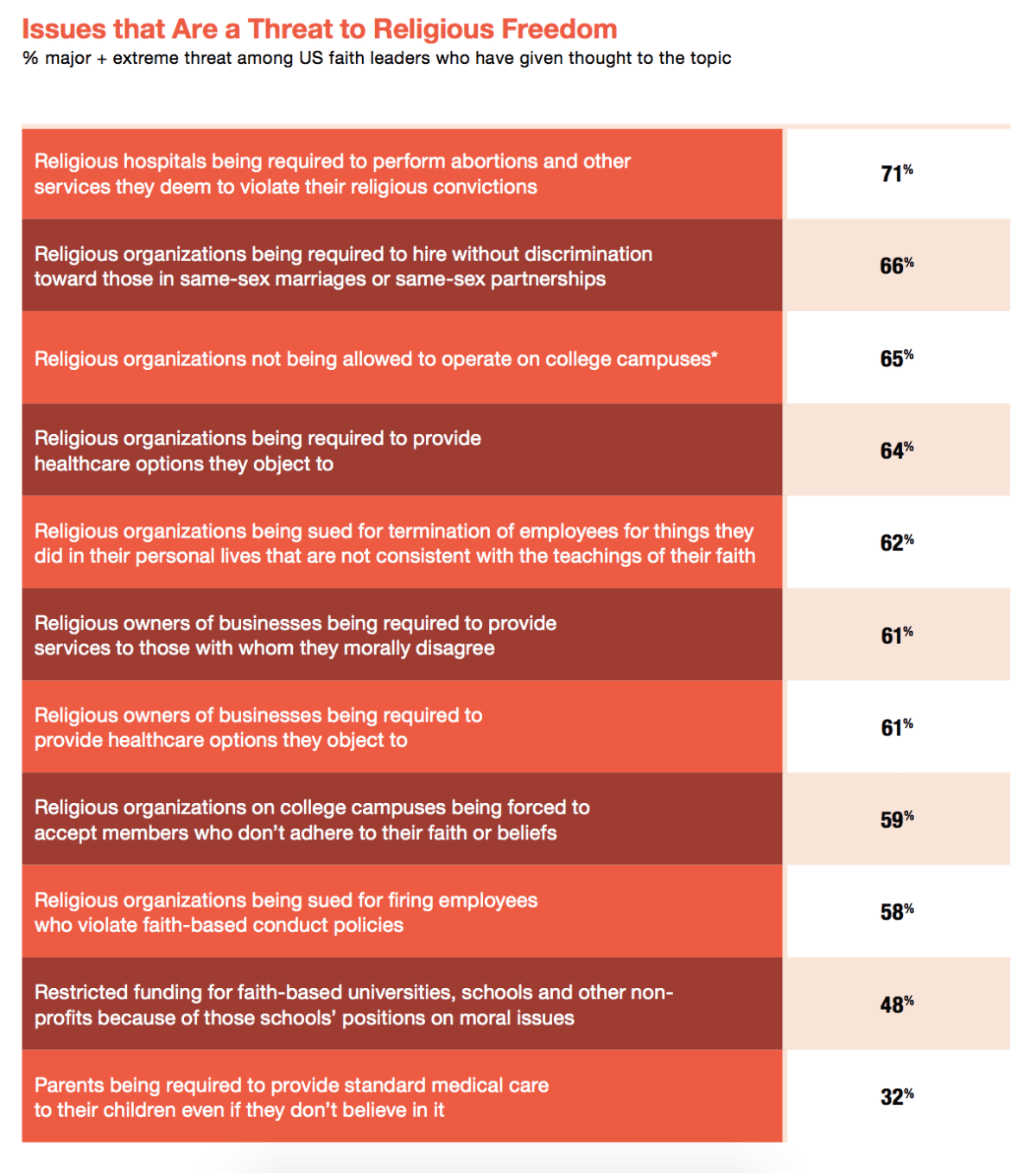 Barna Group
Barna GroupPreaching Pressures
Homosexuality is the issue pastors feel most pressured by their congregants to talk about and the most limited.

Close to half (44%) of Christian clergy say they feel limited in their ability to speak about homosexuality by people within their own churches. At the same time, 37 percent say they feel pressured by their congregations to speak on the matter.
Far fewer pastors feel these limitations or pressures on issues like abortion, sex before marriage, or immigration.
The Barna report tracked faith leaders’ responses in surveys spanning from 2014 to 2017. Among non-mainline pastors, 46 percent said it has become harder to speak out about biblical beliefs related to social issues than it was five years ago, while 49 percent said it is the same. Only 6 percent said it has become easier.
Barna Group president David Kinnaman told CBN News that a large majority of pastors feel constrained in what they can teach. “They actually feel pressured to not preach on certain topics or pressured to speak on topics that they are not ready to talk about,” he said.
Non-mainline Protestant pastors are the least likely to say this shift has led them to change their message. While 11 percent of all Christian pastors feel “frequently” constrained by concerns of causing offense, just 7 percent of non-mainline pastors, 6 percent of Southern Baptists, and 8 percent of African American Protestants feel constrained that often.
The researchers noted that over just a few years, Protestant pastors became less likely to say they “never” felt limited by causing offense and more likely to say they “occasionally” felt that way.
“The likeliest explanation for this shift is that between 2014 and 2015–16, a number of pastors found that political remarks, which in previous years went mostly unnoticed, were rather suddenly received with some hostility,” the researchers wrote.
“It is also possible that during that window more clergy had a bad experience on Facebook or Twitter after posting a link or video that might have been seen as unobjectionable in previous years but elicited a stronger response in the current context. As a result, clergy who once felt completely at liberty to speak about political questions felt the need to be more cautious.”

Most pastors (64%) worry more about how their own congregants will respond than the outside world, though they say most of the pressure they feel comes from outside the church.
In 2017, CT asked whether pastors should address current events in sermons. “The church needs to become part of the voice on hot news stories,” Tulsa pastor Alex Himaya responded. “I think any time we can reference the gospel and insert biblical truth into a hot topic, we should consider it.”
Plenty of other pastors encouraged preachers to bring Scripture to bear on the issues of the day.
“As long as it promotes the gospel and equips the saints to live more faithfully, I would not avoid carefully applying God’s Word to current events,” Mika Edmondson, a pastor in Grand Rapids, told CT. “However, it takes wisdom and care to broach current issues in a way that serves—and does not detract from—the Bible’s eternal message.”
“If we were to address issues more regularly, while still doing so biblically and respectfully, our congregations would be far less scandalized when we do,” said Seattle-based pastor Peter Chin.
LGBT Rights and Religious Rights
Overall, more than 9 in 10 US clergy across faiths (92%) assert that religious communities must remain free to teach a traditional definition of marriage, and 79 percent of American adults agree, according to Barna surveys. In 2015, the same percentage of Americans overall said religious institutions should not be legally compelled to perform same-sex weddings.
Despite that consensus, pastors continue to worry about how LGBT protections will challenge Christian convictions in schools, workplaces, and the public square.
Just as evangelicals debated “Fairness for All” legislation as a model for safeguarding the rights of both groups, a 2017 Barna survey found Protestant pastors were fairly split: 53 percent favored federal legislation to protect LGBT rights and religious freedom and 47 percent opposed.


